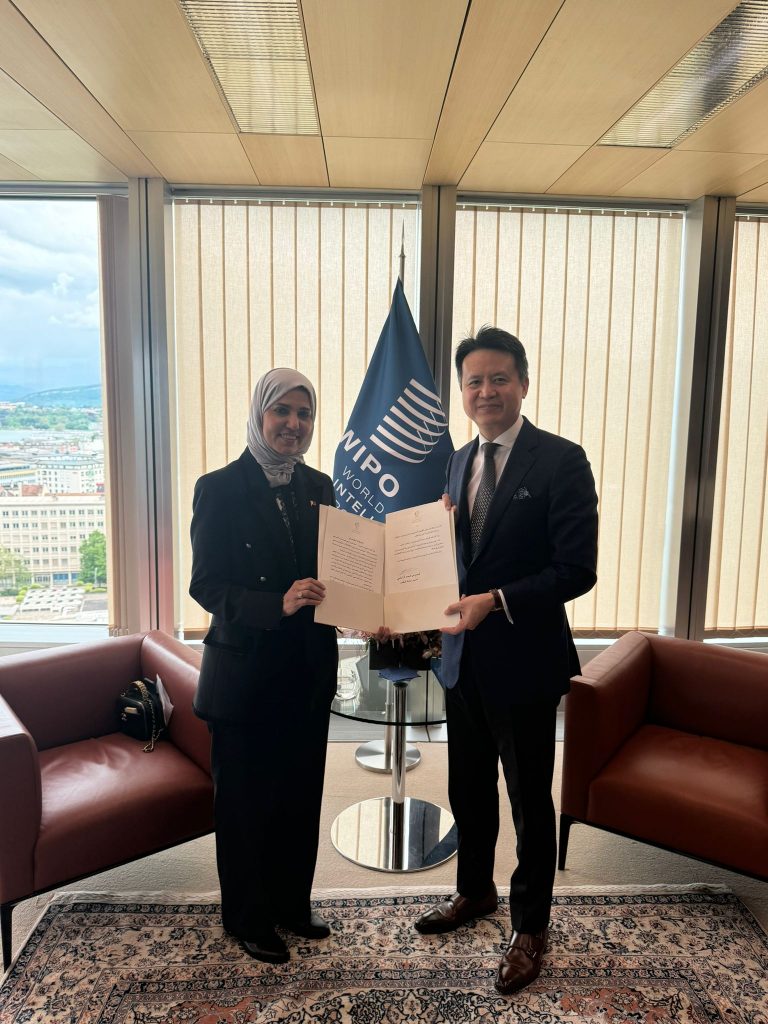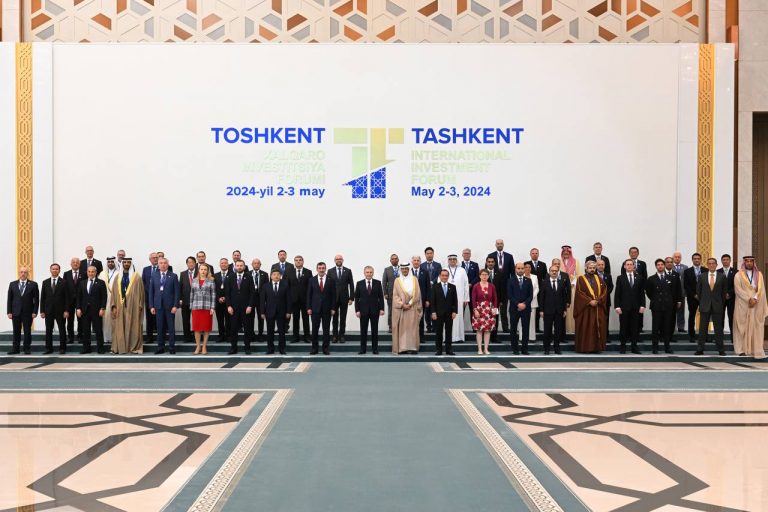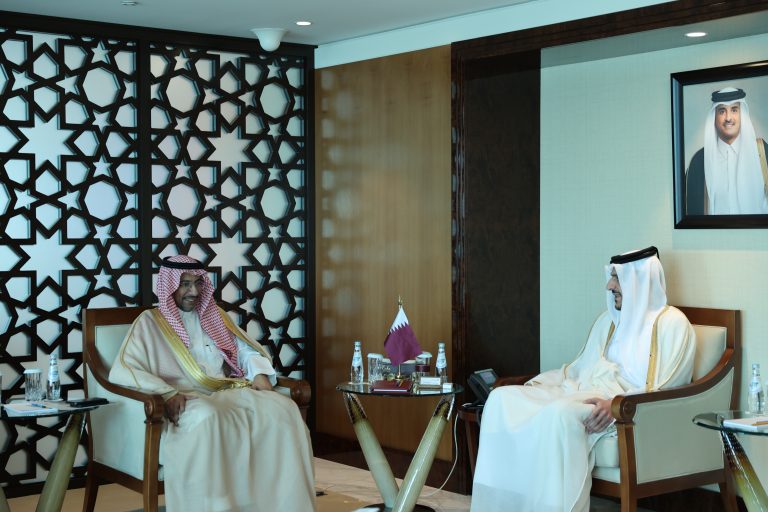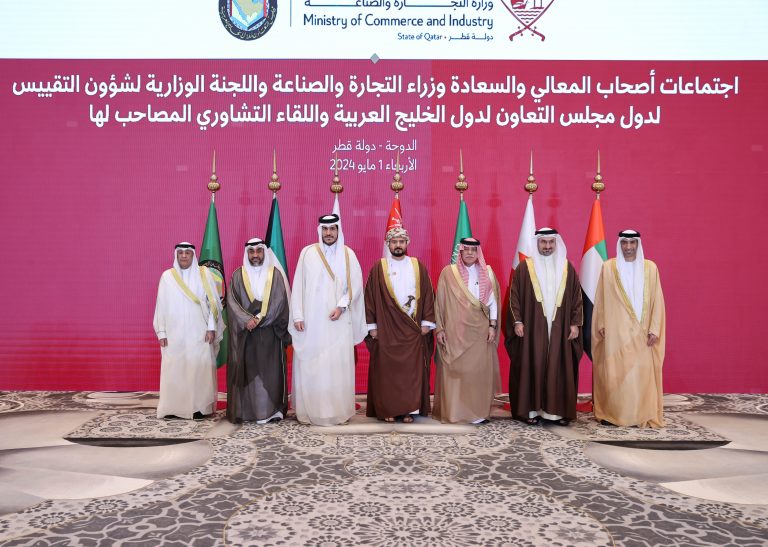In his opening speech at the Qatar-U.S Economic Forum held in Charleston, South Carolina within the framework of Qatar’s Economic Roadshow in the U.SH.E. Qatar’s Minister of Economy and Commerce highlights broad prospects for Qatari- U.S partnership, says Qatar achieved remarkable economic growth· The U.S. is one of Qatar’s most valued and largest global partners with bilateral trade reaching 24 billion US dollars in the last five years.· Qatar has sought to cement its trade relations with countries around the world, particularly the U.S· Qatar’s economy maintained its positive growth rates during the past year, confirming that the country was unaffected by the blockade· Qatar’s total foreign trade rose significantly last year, increasing by 16% in 2017· Qatar’s exports increased by 19%· Qatar’s total trade surplus increased by 40%.· Numerous international reports have indicated the strong performance of the Qatari economy despite regional challenges· Globally, Qatar ranks first in terms of providing a safe business environment according to a report published by the World Economic Forum· Qatar has sought to mobilize its regional agreements with Kuwait, Iraq, Oman, Turkey, Pakistan, India, Azerbaijan and Central Asia.· A large number of Qatari businessmen and CEOs are looking forward to foster investment partnerships with their American counter-parts
Within the framework of Qatar’s Economic Roadshow across a number of U.S cities, the Ministry of Economy and Commerce, in cooperation with Qatar Chamber, the U.S Chamber of Commerce, the Qatari Businessmen Association and the US-Qatari Business Council organized on Monday, April 16, 2018, the Qatar-U.S Economic Forum in Charleston, South Carolina.
His Excellency Sheikh Ahmed bin Jassem bin Mohammed Al-Thani, Minister of Economy and Commerce, chaired the forum, which brought together Ambassador Anne Patterson, President of the US-Qatar Business Council and Mr. Tony Allen, Program Manager for Foreign Direct Investment in the South Carolina Department of the Ministry of Commerce, along with a large number of businessmen and Qatari officials and CEOs from major American companies.
In his opening speech, H.E. the Minister of Economy and Commerce stressed that Qatar’s Economic Roadshow in the U.S, which includes the Qatar-U.S Economic Forum as well as business-to business-meetings and sectorial roundtable discussions and exhibitions to highlight economic and cultural partnerships with key U.S cities, is designed to further promote U.S-Qatari bilateral ties and partnerships.
H.E. noted that international trade and investment form a key part of Qatar’s future growth and diversification, adding that the U.S is one of Qatar’s most valued and largest global partners, with a trade volume that reached U.S$24 billion in the past five years.
The U.S is also Qatar’s first destination for imports, H.E said, noting that 16% of Qatar’s imports came from U.S in 2017. H.E also highlighted that financial transactions from Qatar to the U.S reached 26.5 billion U.S dollars in 2017 alone, including business profit, salaries, and payments.
Meanwhile, more than 650 American companies are established in Qatar, including 117 companies 100% owned by US citizens, H.E. said, adding that another 55 U.S companies operate under the Qatar Financial Centre.
According to the minister, Qatar has been increasing its investments in the U.S for many years, creating thousands of jobs across America. These include partnerships with numerous American companies, such as ExxonMobil, ConocoPhillips and Raytheon, Sheikh Ahmed noted.
In addition, 15,000 American citizens live in Qatar, where 5,000 highly skilled individuals are currently working in the private sector, H.E. said.
Touching on Qatari investments in the U.S, H.E. said Qatar Airways alone provided a US$92 billion boost to the U.S. economy through the purchase of 332 American aircrafts a deal that supports more than 527,000 jobs. H.E added that US$146 billion worth of exports and orders to Qatar have generated 1 million American jobs that depend on doing business with Qatar.
On a related note, H.E. shed light on Qatar Investment Authority, which pledged to invest US$45 billion for the period from 2015 to 2020. Of that, US$10 billion will be channeled into the infrastructure sector, H.E. said, noting that these investments represent 23% of Qatar’s GDP.
Touching on the oil and gas sector, H.E said Qatar Petroleum has allocated $10 billion worth of investments in a LNG plant in Texas, noting that this project would provide 45,000 jobs over the life of the station.
Highlighting investments by the private sector, Sheikh Ahmed said private companies have heavily invested in the US economy, with more than US$5 billion in the fields of technology, hospitality, real estate and retail, which contributed to bolstering the US economy.
The minister also pointed out that Qatar spent around US$200 million on medical and healthcare for its citizens in 2017, while more 1,200 Qatari students are studying at universities in the US.
H.E touched on the measures that Qatar has taken to overcome the unjust siege imposed on the country since 5 June 2017, which was aimed at undermining its position as an independent economic and sovereign state.
Qatar has emerged stronger and more independent than ever before, the minister stressed, noting that the illegal blockade has presented an opportunity for Qatar to cement its trade relations with countries worldwide, particularly the U.S and make its economy more accessible to the world.
H.E. added that Qatar has successfully established direct commercial routes with a number of strategic hubs around the world, diverting trade to its major trading partners.
H.E explained that Qatar has sought to mobilize its signed regional agreements with Kuwait, Iraq, Oman, Turkey, Pakistan, India, Azerbaijan and Central Asia to expand its trade activities by establishing a sea fleet that connects Qatar with its major trading partners in the world, targeting a market of 400 million population in its first stage.
Qatar’s economy maintained its positive growth rates during the past year, confirming that the country was unaffected by the blockade, H.E. said.
In 2017, Qatar’s total GDP Increased to US$220 billion, compared with US$ 218 billion in 2016, H.E. said, noting that the annual real growth rate at constant price reached around 2% in 2017, which was better than expected.
H.E added that numerous international reports have indicated the strong performance of the Qatari economy despite regional challenges. Quoting the latest report released by the World Bank, H.E. added that Qatar’s real GDP growth is expected to increase to 2.8% in 2018, the highest among GCC countries.
Touching on Qatar’s foreign trade, H.E said Qatar’s total trade volume rose by 16% in 2017 while exports increased by 19%, contributing to a total trade surplus that increased by 40%.
Globally, Qatar ranks first in terms of providing a safe business environment according to a report published by the World Economic Forum, H.E said.
All these positive indicators, according to Sheikh Ahmed, show that Qatar has overcome the blockade by enhancing its economic competitiveness.
On another note, Sheikh Ahmed also emphasized that Qatari-U.S cooperation is not only related to trade and investments, but also extends to other fields, noting that these mutually beneficial relationships are all about the Qatari and American people helping one another to overcome challenges and capitalize on opportunities.
H.E said Qatar donated US$100 million to help victims of Hurricane Katrina, which contributed in community development, building houses and hospitals. Qatar also provided US$30 million dollars in aid after Hurricane Harvey.
Sheikh Ahmed added that the Qatari private sector is also playing a major role in U.S corporate social responsibility, citing the privately funded “Al Faisal without Borders Foundation,” which has launched projects to help rehabilitate American ex-convicts.
H.E added that Qatar’s Economic roadshow, which targets 10 U.S cities with the first phase taking place in Miami Florida, Washington DC, South Carolina and North Carolina, followed by a second phase across other U.S states, comes within the framework of Qatar’s keenness on bolstering cooperation prospects with the U.S and enhancing communication between the private sectors in both countries.
H.E said a large number of Qatari businessmen and CEOs of major companies are looking forward to foster investment partnerships with their American counter-parts.
An exhibition that highlights Qatar’s heritage and culture as well as joint achievements and investments was also inaugurated, HE said.
H.E. concluded his speech by reiterating Qatar’s commitment to its economic strategic partnership with the US, wishing both the Qatari and US people success and prosperity.
For her part, Ambassador Anne Patterson, President of the U.S-Qatar Business Council, said the goal of the Qatar-U.S Economic forum in Charleston is to familiarize the American private sector with investment opportunities in Qatar. In return, U.S businessmen will be introducing the Qatari delegation led by H.E Qatar’s Minister of Economy and Commerce to investment opportunities in South Carolina, she added.
Speaking at the forum, Ambassador Patterson said Qatar was familiar with the state of South Carolina through the purchase of Boeing aircraft. Last week, Qatar Airways signed a $ 1.7 billion purchase agreement with Boeing, the largest for the company, Paterson said, noting that the deal provides around 400,000 jobs in the US.
“This is not just about Boeing. Qatar has been facing a blockade since June last year. It has sought to change its trade routes by looking at alternative opportunities and seeking new supplies when its borders were sealed with its neighbors. Qatar had to import food, building materials and even the necessary drug supplies from other countries, which proved Qatar’s resilience,” Patterson said, noting that “Qatar now has the opportunity to import higher quality products at lower prices compared to previous imports from neighboring countries.”
Ambassador Patterson added that Qatar has earned the experience and seized the opportunity to achieve self-sufficiency and open up new ports over the past few months, noting that there is much room for cooperation between Qatar and South Carolina in various fields.
Ambassador Patterson highlighted the similarities between South Carolina and Qatar, noting that South Carolina is a leading tourist destination that attracts thousands of visitors annually. Qatar is also a leading tourist destination in the Gulf region and a hub for cruise tourism, Patterson said, highlighting the large number of tourists that will visit Qatar to attend the 2022 World Cup.
“During my meeting in Miami, I met a number of tourism professionals who wanted to visit new destinations and organize celebrity trips to destinations other than Europe,” she said, noting that Qatar has the opportunity to become a major tourist destination thanks to its advanced infrastructure, 5-star hotels, and safe investment climate.
Ambassador Patterson added that thanks to its strong expertise in the tourism industry, Charleston can work with Qatar to boost tourism.
Ambassador Patterson also noted that the forum touched on important issues such as the role that Qatar played in enhancing its economy and increasing the contribution of SMEs to economic growth in addition to adopting laws and legislation that will bolster the business and investment environment in Qatar. These include waiving visa requirements for citizens from 80 countries while it could take up weeks to obtain visas to other Gulf countries, Patterson said. She added that Qatar has also allowed foreigners to fully own companies, noting that these incentives are conducive to attracting more investments and stimulating the business environment in Qatar, Patterson said.
Mr. Tony Allen, Program Manager for Foreign Direct Investment in the South Carolina Department of the Ministry of Commerce, praised the Qatari delegation for choosing Charleston and South Carolina as part of Qatar’s Economic Roadshow in the US. “We hope this visit will enhance the relations between the two countries.”
A delegation from Qatar Investment Authority (QIA) and Qatar Airways (QR) visited South Carolina last February and signed a contract to buy Boeing 787s, Allen noted, adding that South Carolina presents numerous investment opportunities that Qatari businessmen could tap while businessmen from South Carolina also have the opportunity to invest in Qatar.
He added that Qatar’s Economic Roadshow in the U.S familiarizes participants with investment opportunities in both countries.
“The state of South Carolina is open to business and offers many opportunities while also the state is home to major corporations such as Boeing and major banks and institutions,” he said, adding that South Carolina is a leading destination for foreign direct investments.
The forum also featured bilateral meetings between Qatari and US. businessmen who explored investment opportunities in both countries and the promotion of long term cooperation mechanisms between US and Qatari companies.
The Qatari delegation participating in the economic roadshow is led by H.E Sheikh Ahmed bin Jassem bin Mohammed Al-Thani, Minister of Economy and Commerce. The delegation brings together representatives from the Ministry of Economy and Commerce, Ministry of Energy and Industry, Qatar Investment Authority (QIA), Qatar Chamber, Qatar Airways (QR), Qatar Foundation (QF), Doha Film Institute (DFI), Qatar Stock Exchange, Free Zones Authority, Qatar Financial Centre, beIN SPORTS , the Supreme Committee for Delivery & Legacy , Al Manateq Company, Qatari Diar , Katara Hospitality and Qatar Tourism Authority (QTA), and several other major Qatari institutions.
Qatar’s Economic Roadshow in the U.S features economic forums, bilateral discussions, meetings between Qatari businessmen and their American counterparts, exhibitions and roundtable sectorial discussions in the fields of real estate, investment, hospitality, tourism, hotel, technology, health, medicine, banking, law, public-private partnerships and infrastructure projects.
H.E. Qatar’s Minister of Economy and Commerce highlights broad prospects for Qatari- U.S partnership, says Qatar achieved remarkable economic growth
April 18, 2018







